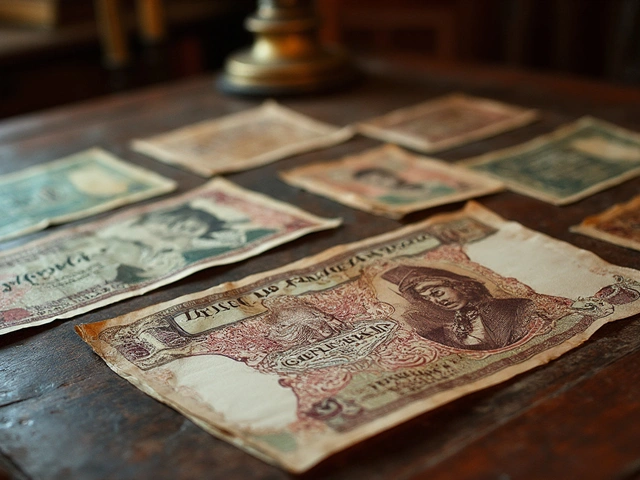British Currency Made Simple – Your Quick Guide to the Pound
If you’re planning a trip to the UK or just curious about the money people use there, you’ve landed in the right spot. The British currency is called the pound sterling, commonly shortened to GBP or just “pound”. Below you’ll find the basics on notes, coins, where to exchange, and a few handy tips to keep things smooth.
What’s in Your Pocket? Coins and Notes
The pound is divided into 100 pence. Coins come in 1p, 2p, 5p, 10p, 20p, 50p, £1 and £2. The £1 and £2 coins have a bimetal look and a distinctive edge, making them easy to spot. Notes start at £5 and go up to £50. The £5, £10, £20, and £50 notes each have a portrait of a British monarch on one side and a famous building on the other.
Most shops and restaurants accept cards, but it’s smart to carry a few coins for small purchases like a coffee or public transport. Keep an eye on the design – newer notes have holograms and raised print to help you spot fakes.
Where to Get and Spend Pounds
Airport currency desks and major banks are the easiest places to exchange cash. You’ll usually get a better rate at a bank than at a hotel or airport kiosk. If you have a debit or credit card, use an ATM; most machines give a fair exchange rate, though your bank might add a small fee.
In the UK, contactless payments are everywhere – from cafés to museums. Just tap your card or phone. If you prefer cash, look for “cash‑only” signs; they’re common in smaller shops or market stalls.
Tips for Safe and Smart Spending
1. Check the exchange rate before you trade. Websites like XE or your bank’s app give real‑time rates.
2. Keep receipts when you withdraw cash. If you need to track spending for a budget, they’re helpful.
3. Watch out for counterfeit notes. Feel the raised print, and look for the watermark when you hold the note up to light.
4. Use a money belt or hidden pouch if you’re in crowded places – it’s the simplest way to avoid pickpocketing.
5. Many hotels let you pay in pounds even if your booking was in another currency. Ask at checkout; sometimes they’ll give you a better rate than a currency exchange desk.
Digital Money and the Pound
Beyond cash, the UK loves digital wallets. Apps like Apple Pay, Google Pay, and Samsung Pay are accepted at most terminals. If you travel with a prepaid travel card, load it with pounds before you go – it works like a debit card but isn’t linked to a bank account, which can be useful for budgeting.
Remember, the UK has a strong banking system, so most major cards work without a hitch. Just let your bank know you’re traveling to avoid any surprise blocks on your card.
Now you know the basics: the coins, the notes, where to get them, and how to keep your money safe. Whether you’re sipping tea in a London café or sightseeing in Edinburgh, you’ll feel comfortable handling British currency. Happy travels!





